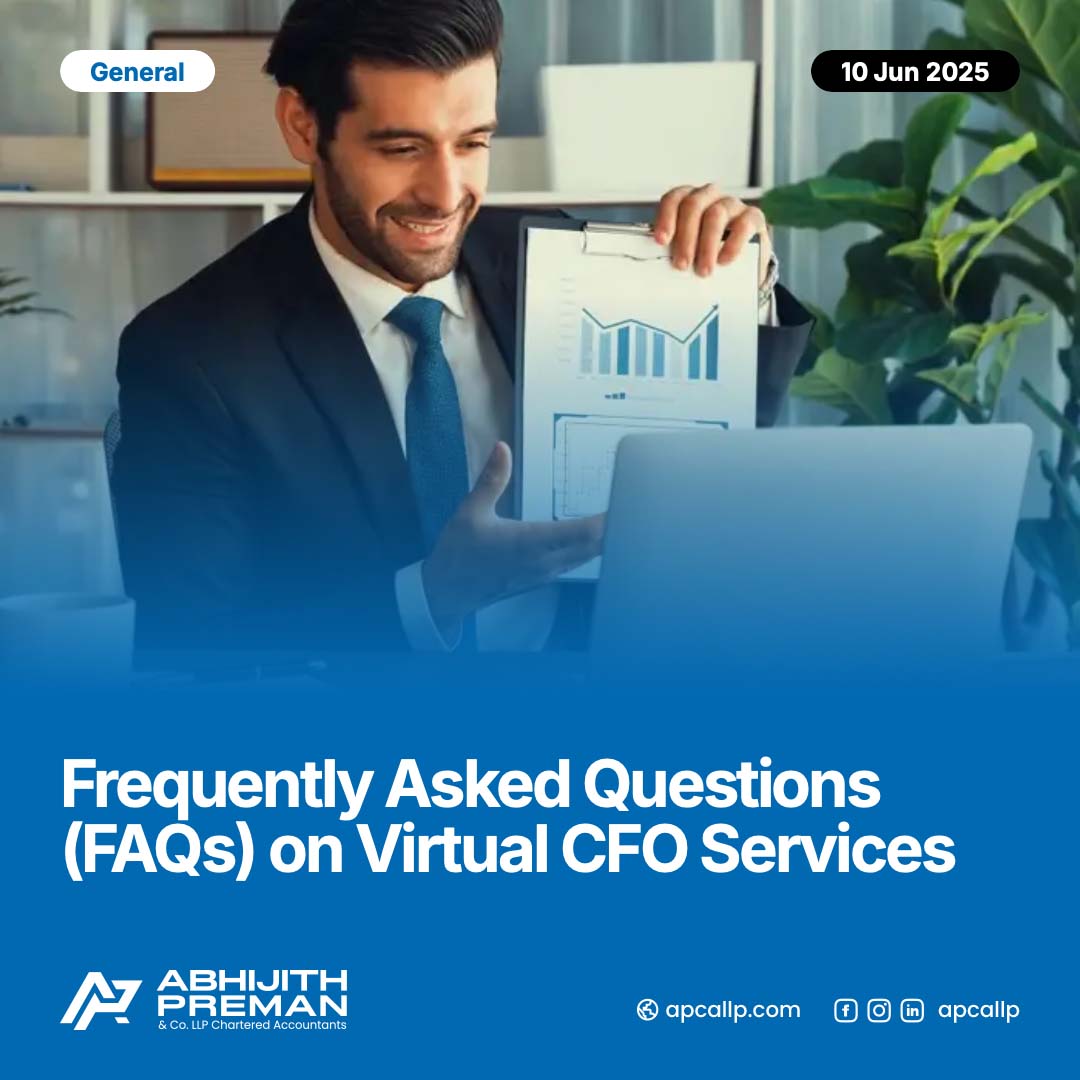
Introduction
Virtual CFO (Chief Financial Officer) services have become an essential strategic asset for startups and SMEs seeking to scale efficiently without incurring the high cost of a full-time CFO. However, many founders and business owners still have questions about how these services work, what they entail, and how to choose the right provider. This article addresses the most frequently asked questions to clarify the value and structure of Virtual CFO engagements.
1. What is a Virtual CFO?
A Virtual CFO is an outsourced finance professional or firm that provides high-level financial strategy, analysis, and oversight to businesses on a part-time or contractual basis. They deliver the same strategic financial guidance as an in-house CFO but at a fraction of the cost.
2. Who should consider hiring a Virtual CFO?
Virtual CFO services are ideal for:
- Startups preparing for fundraising
- SMEs seeking to optimise cash flow and profitability
- Businesses experiencing rapid growth or entering new markets
- Founders needing financial clarity for investor relations or compliance
3. What services does a Virtual CFO typically provide?
Core services often include:
- Financial planning and analysis (FP&A)
- Budgeting and forecasting
- Fundraising support and investor reporting
- Compliance and statutory management
- Financial modeling
- Cash flow management
- Strategic advisory on cost structures and pricing
4. How is a Virtual CFO different from an accountant or bookkeeper?
Accountants and bookkeepers focus primarily on historical data, transaction processing, and statutory compliance. A Virtual CFO goes beyond this to provide forward-looking financial strategy, performance insights, and executive-level decision support.
5. How are Virtual CFO services priced?
Pricing models vary depending on the scope, complexity, and duration of engagement. Common structures include:
- Fixed monthly retainers
- Hourly consulting rates
- Project-based pricing (e.g., for fundraising rounds or audits)
6. Can a Virtual CFO help with fundraising?
Absolutely. A Virtual CFO plays a pivotal role in:
- Financial modelling and valuation support
- Pitch deck, financials and investor Q&A preparation
- Due diligence management
- Connecting with VCs and angel networks
7. Is it secure to share financial data with a Virtual CFO?
Reputable Virtual CFO firms implement strict data protection protocols, including NDAs, encrypted data storage, and secure communication channels. Always verify the provider’s security policies and references.
8. What should I look for when hiring a Virtual CFO?
Key considerations include:
- Industry experience
- Proven track record with similar-sized businesses
- Strong references and case studies
- Compatibility with your business stage and goals
Conclusion
As businesses scale and the financial landscape becomes increasingly complex, a Virtual CFO can be the strategic partner you need to stay financially healthy and investor-ready. By addressing the most common questions, we hope this guide empowers founders and business leaders to make informed decisions about integrating Virtual CFO services into their growth strategy.
